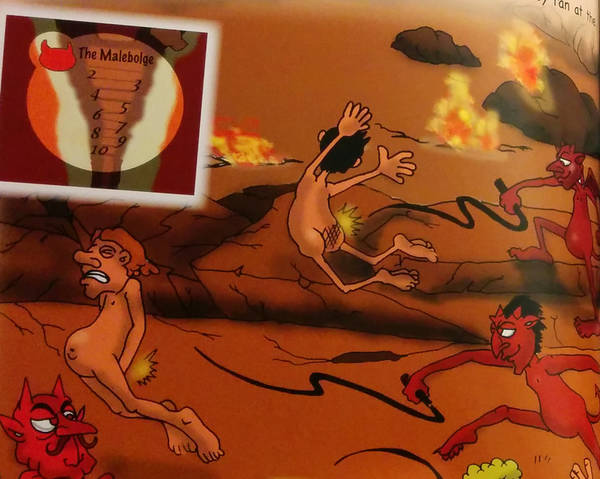 “In The Discipline of the Mountain Daniel Berrigan offers ‘ways of imagining our plight’ through the poetic vision of Dante’s Purgatorio. There can be found ‘a faithful vision, an alternative, a truthful image of God, of ourselves, of history.’ Berrigan employs free, poetic adaptation of the original–its themes, moods, discourses, encounters–with a prose commentary relating the text to political-moral issues of the present day. With its themes of lust and hatred, religious strife and ecclesiastical corruption, military power and oppression, the Purgatorio is an apt allegory of modern society. Thirteenth-century kings and princes shade into twentieth-century colonels and shahs and juntas.” —Description from Wipf and Stock Publishers
“In The Discipline of the Mountain Daniel Berrigan offers ‘ways of imagining our plight’ through the poetic vision of Dante’s Purgatorio. There can be found ‘a faithful vision, an alternative, a truthful image of God, of ourselves, of history.’ Berrigan employs free, poetic adaptation of the original–its themes, moods, discourses, encounters–with a prose commentary relating the text to political-moral issues of the present day. With its themes of lust and hatred, religious strife and ecclesiastical corruption, military power and oppression, the Purgatorio is an apt allegory of modern society. Thirteenth-century kings and princes shade into twentieth-century colonels and shahs and juntas.” —Description from Wipf and Stock Publishers
In a review published in the magazine Sojourners, Lionel Basney writes, “Berrigan writes that he went to the Purgatorio in search of “ways of imagining our plight.” Looking for new vision in an old work is a familiar activity; but when it means reforging that work to make a new vision, it becomes complicated for both writer and reader. Unlike translation, an ‘imitation’ does not replace the original text. Instead it offers a new work through which the old text is still visible; to read it is to read two texts. Its author writes in the confidence, or hope, that the vision of the older text is still valid, assuming that for his readers as for himself the vision’s fundamental values remain true and compelling.
“But are we close enough to Dante to make this complicated process work? That depends on what we need from him. Berrigan needs terms in which to grasp the barrenness and violence of a way of life that constantly threatens war. Wanting Christian terms for this, terms powerful to Christian consciences, he naturally turns to Dante as the great poet of the Christian vision. And certainly Dante’s world was no less violent than ours.” –Lionel Basney, “Berrigan’s Reawakening of Vision” (Review), Sojourners, August 1980




